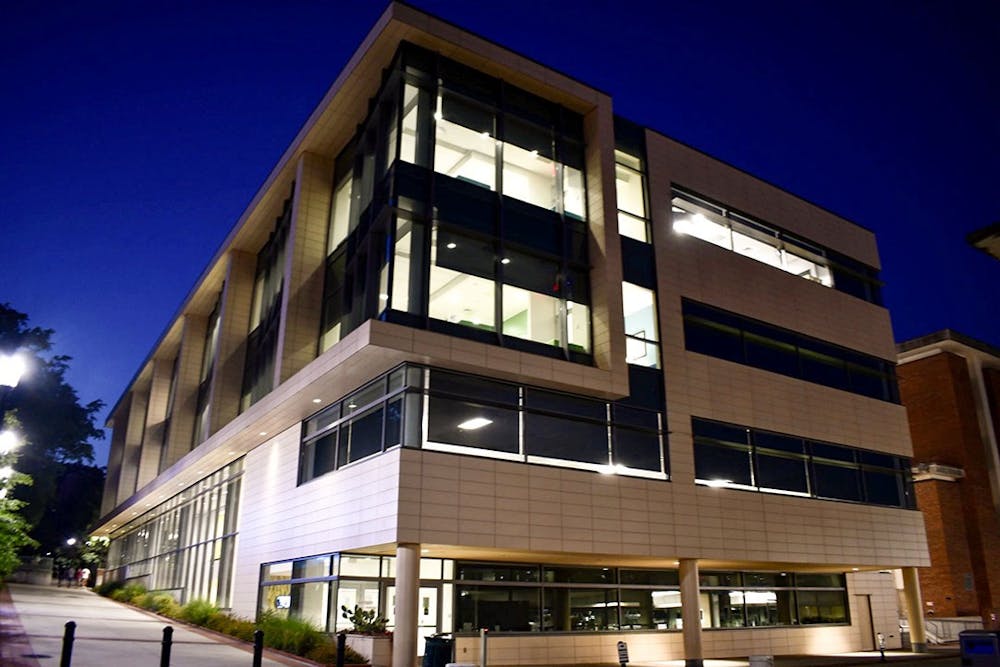Retraction (Nov. 9, 2021, at 8:06 p.m.): The original reporting by Matea Jacobs incorrectly stated all graduate students would receive full insurance coverage, among other inaccuracies. The Daily Gamecock regrets these errors. Haley Kathryn Capps re-reported the news, which is that all graduate assistants can receive full insurance coverage, and corrected other inaccuracies. The URL is unchanged from the original version, but the content and headline are updated with Capps' version.
USC is subsidizing 100% of health insurance for graduate assistants and full-time Ph.D. students at the university, as of this semester.
Graduate students make up 22% of the USC Columbia student body. The subsidy applies to all graduate assistants and full-time Ph.D. students that did not waive the mandatory university health insurance, according to Libby Cross, director of operations for the Graduate School. If a student doesn’t have health insurance on their bill to USC, then the subsidy cannot be applied.
All graduate students with six or more credit hours, all graduate assistants and all international students are covered under the university’s mandatory health insurance unless they waive their coverage by providing proof of comparable insurance, according to Cross.
The health insurance subsidy has gradually increased over time, according to Tracey Weldon, interim dean of the Graduate School and vice provost for Graduate Education. In 2004, USC subsidized $200 of health insurance. This incrementally grew to $1,000. Now, USC is subsidizing the full amount of $2,519.
The Graduate Student Association (GSA) has been advocating for five years for the increase in the subsidy that graduate students receive for their health insurance, according to Sowmya Raghu, second-year mechanical engineering Ph.D. candidate and president of GSA.
Although achieving this subsidy was a group effort, the GSA played a critical role in its development, according to Weldon.
Raghu said although this subsidy may appear to only be a financial benefit, it also provides a “blanket of support.”
“This is essentially supplementing their standard of living and the conditions that they live in because this is a huge burden that is taken off the shoulders of graduate students who are already performing research, doing teaching responsibilities and conducting labs and so on,” Raghu said.
Sudipta Saha is a third-year mechanical engineering Ph.D. candidate who served on the executive board of GSA during the 2020-2021 school year when the subsidy was announced. Part of his motivation in securing the increased subsidy was to demonstrate graduate students as key stakeholders at the university, he said.
Though graduate students are paid a low sum of money, their research greatly benefits the university by supporting their academic departments, Saha said.
“Graduate students are small in number, so they are often forgotten,” Saha said.
Saha said over the last few years, the cost of living in Columbia has greatly increased without the compensation for graduate students growing at the same level. Christopher Eddy, a political science Ph.D. candidate and the former treasurer of GSA, drew attention to a similar problem with rising health insurance costs that were not accompanied by a high subsidy.
“As the price of healthcare continued to increase, it went from covering 50%, or just under 50%, to being about 40%. So, every year, we were actually getting less and less healthcare coverage,” Eddy said.
According to Weldon, the importance of the subsidy has always been known, but the access for funding it has not always been there.
“It wasn’t so much a difference in motivation as it was a difference in access to the funds to be able to make this happen,” Weldon said.
The university recognizes that graduate students don’t have many opportunities to make money, Weldon said. She said she hopes this subsidy will help ease their financial burden.
The subsidy is available only to graduate assistants and full-time Ph.D. students; however, Weldon said that group makes up a majority of the graduate student population.
“It would be ideal if we were able to cover everyone who wants it, and perhaps we will get there eventually,” Weldon said.
Weldon said she believes this subsidy will help make USC more competitive in recruiting graduate students. Eddy shared the same sentiment and said on top of improving the quality of life of graduate students, the subsidy can also attract more talented graduate students to the university.
“We pride ourselves on having a great research record and the best quality research students and faculty that we can get. It's really hard to keep good students coming in if they're getting offers from other institutions that are saying, ‘Hey, we'll pay you more, and we'll cover healthcare costs,’” Eddy said.
On top of the $1,000 health insurance subsidy per graduate assistant and full-time Ph.D. student the Graduate School has been covering since 2018, the school received additional funding to cover an extra $796 in health insurance subsidies per student on top of that for this school year. The remaining balance of $795 per student is being covered by the individual academic units.
Starting next school year, the Graduate School will cover $1,000 per student while the academic units cover the remaining sum.

